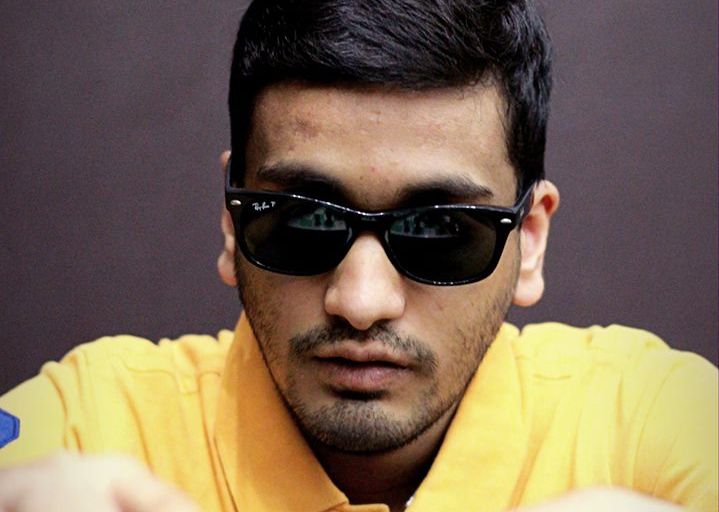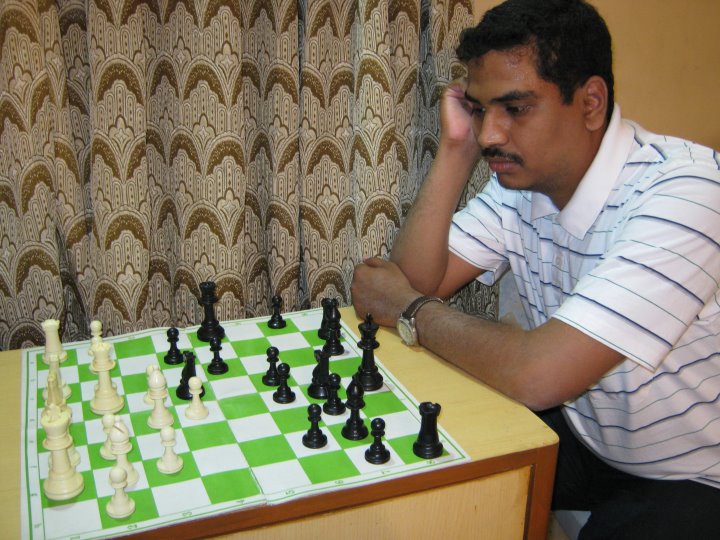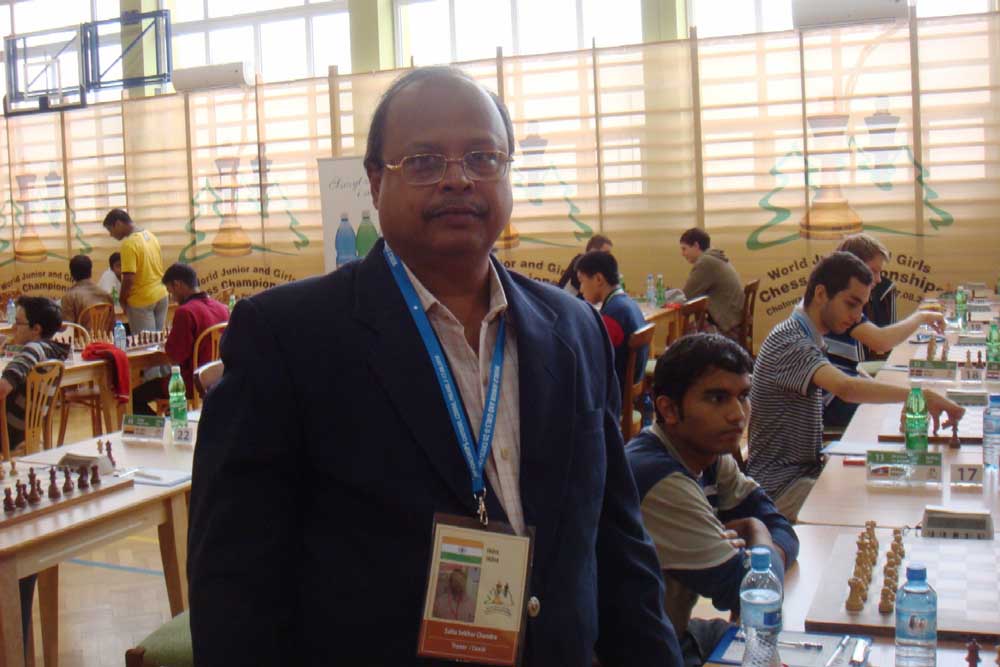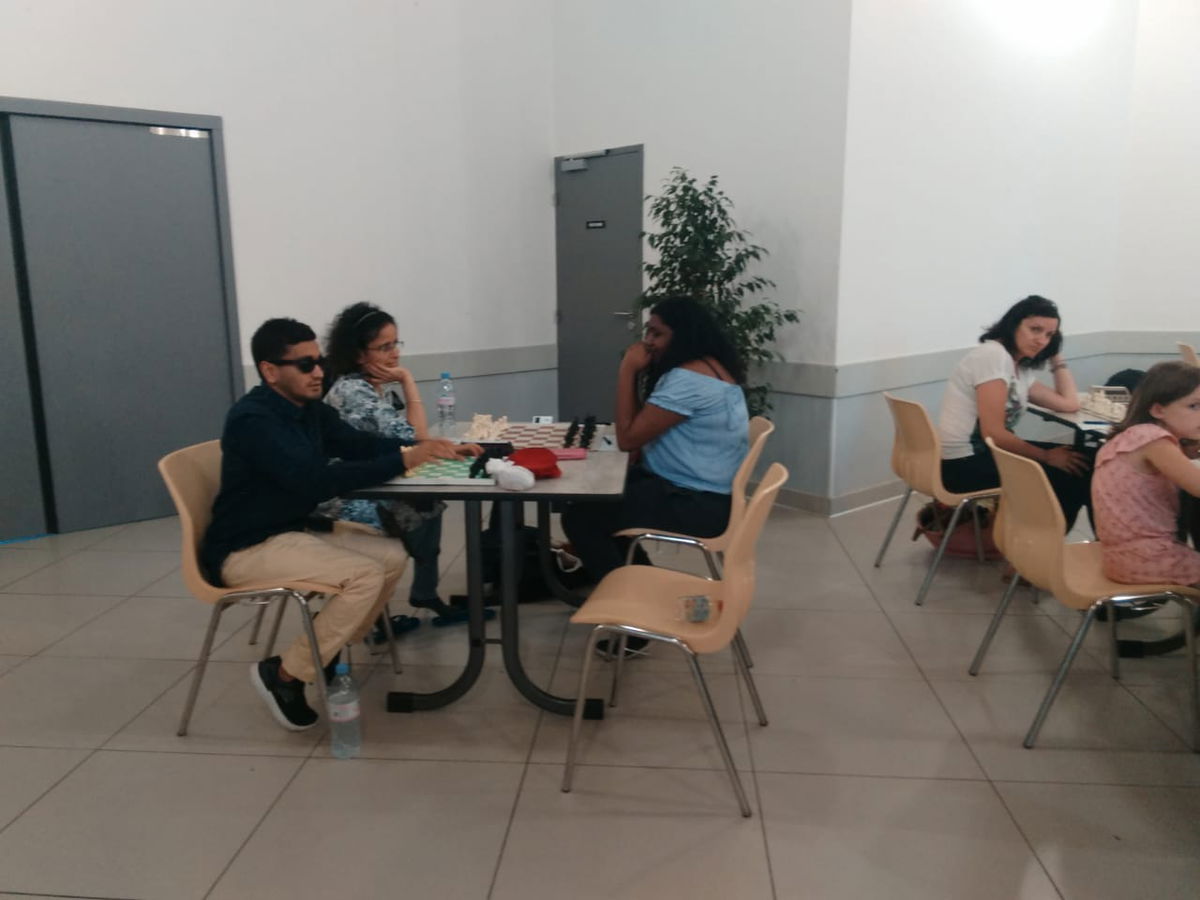One in a million - Darpan Inani, the strongest blind player of India - Part I
Darpan Inani is the strongest blind player in India. Rated 2053, he has been a bronze medalist at the 2013 World Junior Championship in Belgrade. In 2010, he became the youngest player to win the National Blind Championship at the age of 16 years, a record which still stands. We caught up with Darpan for an elaborate interview. In this first part, Darpan talks about his journey as a chess player, his disability, his struggles and the people who helped him through. Darpan Inani is a player whose story is inspirational. Read on to know more about him and his achievements.

Sagar Shah (SS): Darpan, first of all tell us about your blindness. Was it from birth or did it happen later?
Darpan Inani (DI): I was born as a completely normal child. But at age three, I was afflicted with the Steven Johnson Syndrome, a rare skin condition which affects one to two people per million per year. This was just four days after I had started going to school. I caught fever and later conjunctivitis. Later it was discovered that this was the Steven Johnson Syndrome. This had happened because of an injection called Gentamicin which was given to me. I was hospitalized for around two months and was in the intensive care unit for somewhere between 20 and 25 days. The doctors had said it would be difficult for me to survive. They had given me some steroid and had told my parents to be hopeful. Rashes and blisters began to form on my body and soon the entire upper layer of the skin had peeled off. My body produced a lot of heat. Even my nails had peeled off because of this. My eyes had turned so dry that even my tears would dry out if I cried.
But as days turned to months, the medication began to work and the disease subsided. In about two or three more years, I had almost fully recovered. My skin and nails had regrown by this time but the dryness in my eyes still remained and left me without sight. This blindness had ensnared me in an instant. Within just a day after the reaction had occurred, I was unable to see. And this was complete blindness. I did not even have light perceptions; I couldn’t even see shadows.
SS: How were you acquainted with the game of chess. Who taught and how did your journey begin?
DI: I started playing chess quite late. I was 13 when I started. It was the same with my formal education, actually. I was eight when I started going to school. I had joined directly in the third grade. So once I had settled myself academically, I mean, once my academics were going fine, my parents began to look for some co-curricular activities for me. For this, they once went to the blind welfare association and there they found out that chess could also be played by the visually impaired. They also saw the specially designed chess board.
My father bought it immediately and began teaching me the basics. He taught me everything he knew which was basically just how all pieces moved. He did not know the castling rule or the en passant. Some days after this, there we got to know about a ‘blind versus sighted’ match being organized in Baroda. There, I played against a player called Zaheer Bhatkar. When he castled, I complained. I thought he had made an illegal move. He explained to me the castling rule. I lost that game but found a lifelong friend in Zaheer.

After one month of coaching, I played my first tournament. This was an open event but they had age category prizes there. I was the only blind player in the tournament and I won the first prize in the under-14 segment. The feeling was incredible. And that first trophy encouraged me a lot to excel in the game. It kindled an interest in the game in me. I thought if I could win at the district level in just one month of training, I could definitely achieve a lot more. Perhaps, if I hadn’t won that trophy, I would not have continued playing with the same interest.
Then, I went on to play at the state level but in the first two or three years, I wasn’t aware of tournaments organized exclusively for the blind or visually impaired. I had always prepared to play against the sighted.
If chess had not given me this opportunity, of playing on an equal footing with the sighted players, without any modification or dispensation of rules, I would not have clung to chess for so long. But then, chess is about vision, not visibility. Of course, there is time pressure and other things but one could improve on those with practice. What I lack is the apparent visibility, not vision. And this holds true for all blind people in the world. And this we should keep in mind. Chess already illustrates this but we should also keep this in mind for every aspect of life – the difference between visibility and vision.
SS: How difficult was it to improve at chess? Tell us about the struggles you faced to become better at the game.
DI: It was definitely a lot of struggle to improve at chess as a blind player. It’s one thing to play blindfolded and completely another to learn the game being blind. It’s still easier if, let’s say, you lose your sight after you’ve learnt the game. The top players of the world, or even an average player today can play a game of chess blindfolded. But to learn the game being blind has its own difficulty. All the features of Fritz or ChessBase are not accessible for those who are completely blind. Accessibility is the biggest issue.
Secondly, when you’re learning the basics of chess, when you’re solving puzzles, people with complete or partial sight can look at the board or magnify on the screen it if need be. But a completely blind chess player has to have a chess set by his side and he also needs someone to set the position up for him. Initially, I used to solve puzzles from a software called CT-Art. Back then, my mother would sit by my side and set the diagrammed positions up for me.
Even for the coaches, it is not easy to train blind players. It is an unfamiliar situation for them as well. So they, too, at times, are apprehensive as to how they will teach or how their blind student would grasp. In my case, I was refused coaching by a few coaches in Baroda because I was completely blind.
Overcoming time pressure is another challenge. While we do imagine the position in our mind and we don’t touch pieces often, when we are 3 or 3½ hours into the game, it gets very difficult to play with merely 30 or 40 seconds on the clock while our sighted opponents do it more easily. But this can be overcome with practice. Now I am comfortable with playing with little time on my clock.
About how I overcame these obstacles and how I improved, it was through concentrating on my weaknesses and practice. For example, to overcome the time pressure hurdle, I began playing blitz and bullet games on Playchess. My mother used to sit with me and make the moves using the mouse.
I think there is only one chess server – I think it is called freechess.org – that comes with winboard, where blind people can play. But I don’t think many good players play there. Not at least as many as the ones you would find on playchess.com or chess.com. So, I think these servers – which are the most popular servers, at least – should introduce this feature which will enable players to enter moves using the keyboard. Like, if I just type in 1.e4 and press enter, it gets played on the board.
Software like MS Word, there are books and tutorial videos that describe the layout of the screen and teach you how to use keyboard commands. Maybe something similar with Chess software could help a lot of blind players.

This is how I improved at chess. I couldn’t devote much time to chess because, as I said, I had started playing at the age of 13 and I had my board examinations in a couple of years after this. And then, Shekhar Sahu sir’s contribution was the greatest in taking my game to the next level. He understood me well. Maybe, I was the first blind student for him but he got comfortable with me quite quickly. He understood my working patterns well and provided me with books and other materials in the format that I wanted.
DI: As I have stated before, Zaheer bhaiya has been the backbone of my chess career. Whenever I want to study from a video, he makes time from his busy schedule to help me.

As far as my coaches are concerned, my first coach was Mr Mukund Bhat. He taught me the basics and laid the foundation. I learned from him for about a year. After Mr Bhat, I have been under the tutelage of IM Shekhar Sahu and he has been my coach ever since. Very recently, about a month back, I had taken a session from GM Srinath Narayanan. My association with him hasn’t been too long but these are the people who have helped me in my chess journey.
Part II of Darpan's journey will follow soon!


